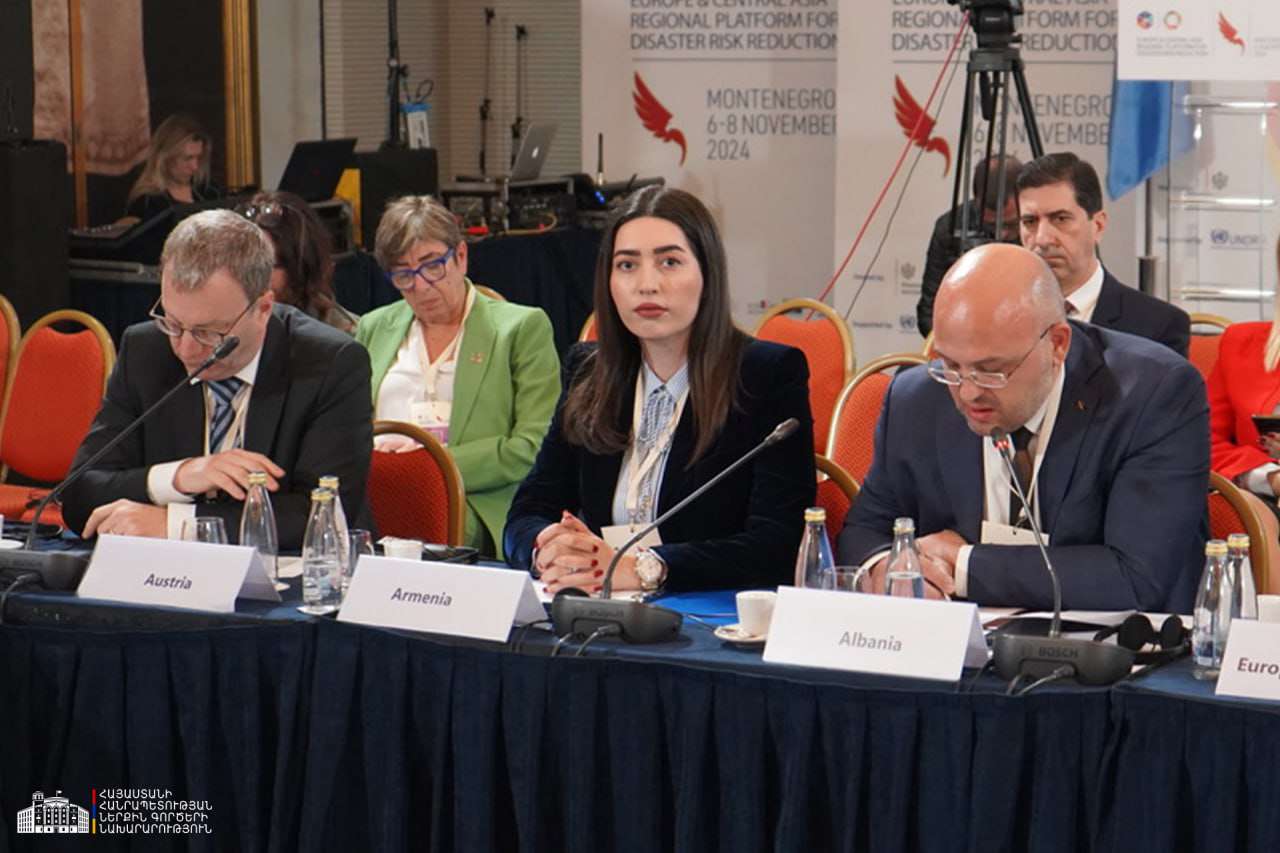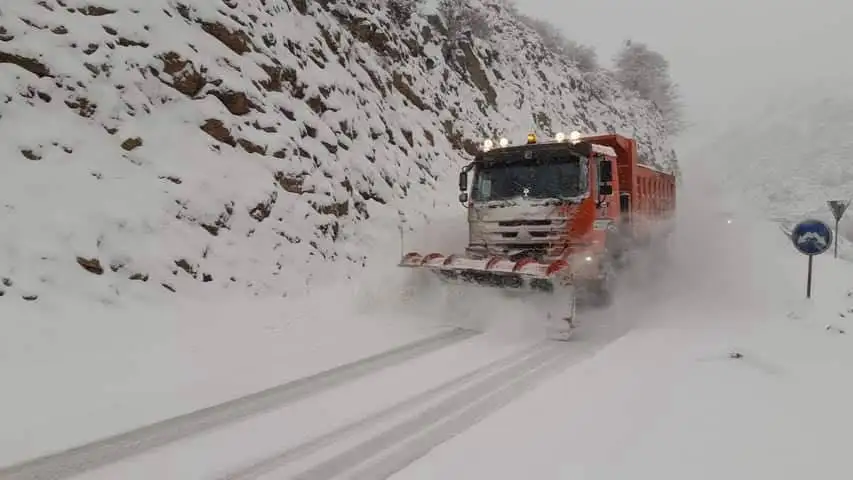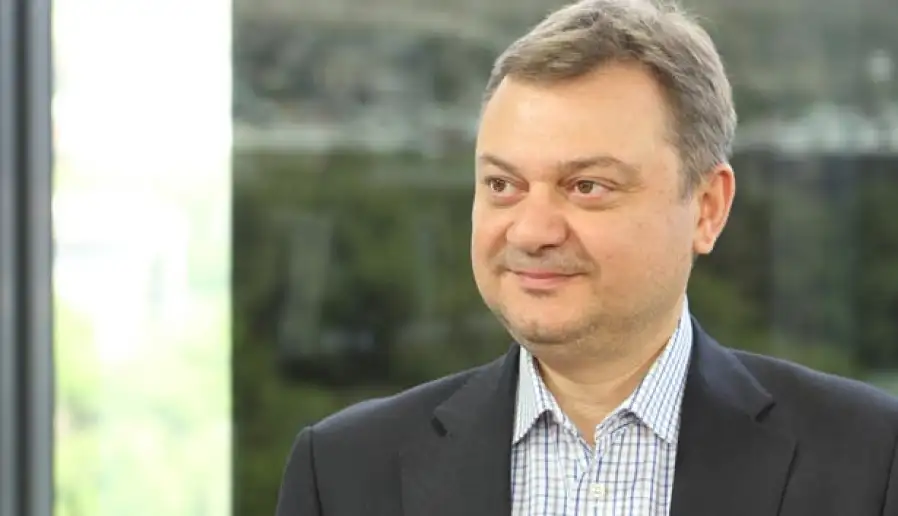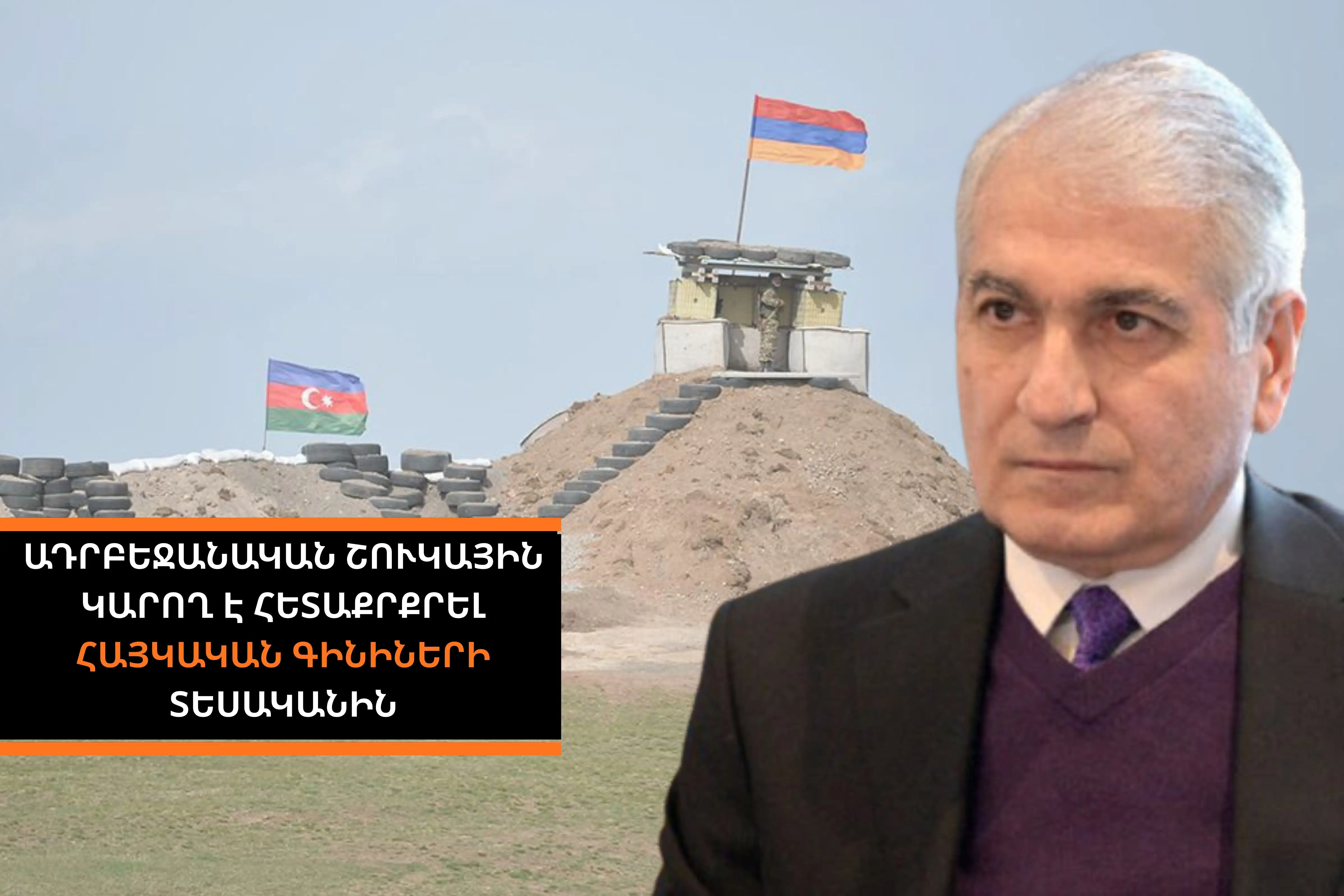Deputy Minister of Internal Affairs Arpine Sargsyan made a speech within the Europe and Central Asia 2024 Regional Platform for Disaster Risk Reduction in Montenegro on November 6-8.
The full text of the speech is below.
"Your excellencies, distinguished delegates,
I am honored to participate in this critical dialogue within the 2024 Regional Platform for Disaster Risk Reduction framework on behalf of the Government of Armenia. The rapidly changing risk landscape requires comprehensive, inclusive, and sustained efforts to respond to new and emerging risks while continuing to mitigate long-standing vulnerability factors.
We recognize that ensuring the full participation of vulnerable groups is critical to building a resilient society. To achieve this goal, our new disaster risk management strategy, approved in October 2023, strongly emphasizes inclusive management. The national policy is designed to include women, children, the elderly, and persons with disabilities at every stage of the DRR processes, from risk assessment to policy development and implementation.
Best practices include promoting local risk reduction initiatives that reflect the interests of these vulnerable groups. Through partnerships with civil society organizations and the National Platform for Disaster Risk Reduction, we implement targeted capacity-building and training initiatives, ensuring that these groups are engaged and actively participate in decision-making.
The recent natural disasters in Armenia emphasized the critical need to involve all stakeholders. In particular, in May 2024, Flash floods in northern Armenia, alongside national and international disaster risk management measures, highlighted the importance of involving local communities and vulnerable groups in preparedness and response efforts. We also appreciate the involvement and support of UN structures in the post-disaster needs assessment process.
This experience has shaped our current policies, ensuring decentralization and community orientation of SRR strategies. Increasing sustainability cannot be done in a top-down manner. It should reflect the knowledge, needs, and capabilities of those on the front lines of dealing with the effects of natural disasters. This has led to reforms to strengthen local governance structures and enhance collaboration between government agencies and non-government stakeholders such as local NGOs and community leaders, ensuring our disaster response systems' more inclusive and adaptive nature.
Harnessing local communities' knowledge is critical to our approach to adaptation to disaster risk reduction and climate change.
Local practices in rural Armenia, such as traditional water resource management systems and land use practices, are invaluable for understanding ecological risks and vulnerabilities. A multi-pronged approach, which is considered in the new legislative framework changes, is crucial to achieving tangible results in urban development, changing risk-taking behavior, adapting the economy to climate change, and creating a safe environment for the development of a vibrant society.
The private sector's involvement is an integral part of a comprehensive strategy for ADR. The private sector controls critical infrastructure, supply chains, and resources, making it essential for effective disaster preparedness and response. We are revamping the mechanisms for promoting community voluntary organizations to engage the local population better.
In addition, the workshops attract young people and children interested in robotics, artificial intelligence, and other technologies, which helps align public and private interests and allows businesses to play an active role in creating resilient communities.




















